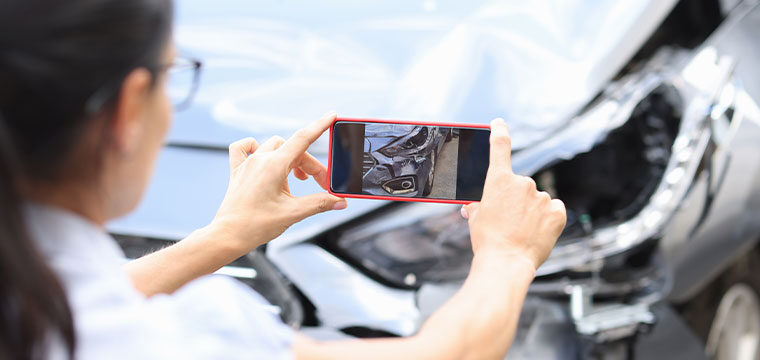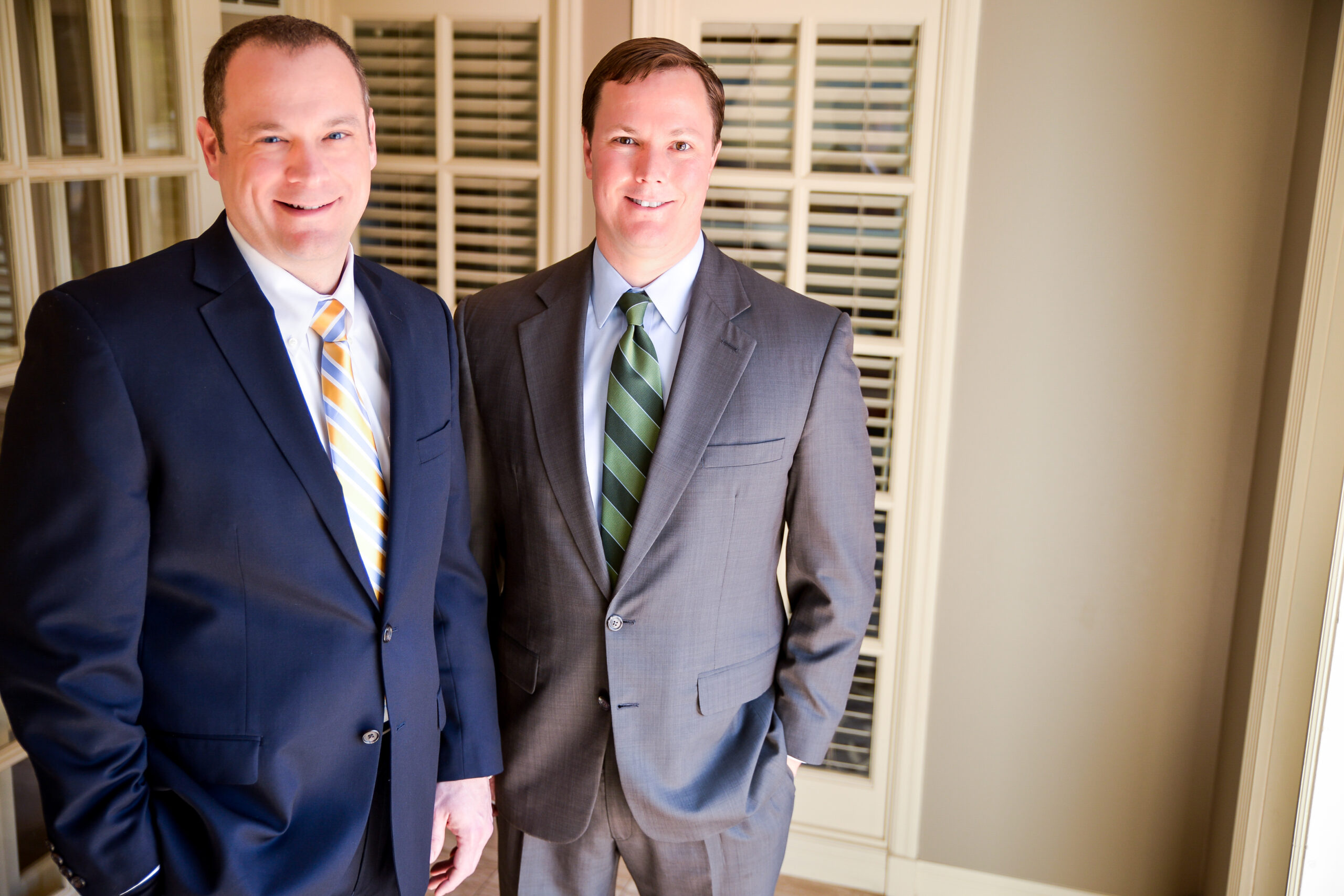Whether written, spoken or visually observed, evidence is crucial to the viability of a legal case — but what should your legal team look for and where? For personal injury victims beginning their legal journey, our attorneys compiled four main categories to consider while gathering evidence for personal injury cases.
Photos & Videos
This is the one type of evidence we recommend you acquire at the time of your injury. Cell phone photos and videos can be valuable evidence — they provide a snapshot of the conditions surrounding your injury. You or a bystander may capture evidence such as skid marks, the resting place of the vehicles immediately after the crash, the conditions that caused you to trip or fall or your initial injuries. Take pictures of bodily harm, property damage and the scene of the incident before you leave. Your legal team may also revisit the scene later to gather additional footage, whether that be from nearby security cameras or documentation of the conditions that then exist.
Medical Records
When it comes to gathering medical evidence, your attorneys will take the reigns — the one thing you have to do is remember all of those who helped you. For the sake of gathering evidence, make note of the doctors and therapists you saw as well as the names of hospitals you visited. Their medical records will detail the treatment and advice they provided for your injury. Ultimately, these records showcase the physical toll someone else’s negligence caused, even if your injury is not visible. Medical records may include diagnoses, bills, prescriptions, lab results and discharge instructions. For most personal injury cases, an attorney will contact the health care providers from which you received treatment.
Keep in mind, your case may face some scrutiny if you failed to visit a doctor after your injury. We recommend that you always seek medical attention and follow through on all instructions given to you by your doctors and therapists. Insurance adjusters and jury members may suspect your injury is not severe enough to pursue and could rule against you if you do not follow the advice of your medical professionals.
Testimony of Involved Parties
Words can have a strong impact, and many people may speak up on behalf of your case. Your attorney will interview potential witnesses while gathering evidence and their statements could solidify the involvement of the liable party or even reveal previously unknown events leading up to your injury. Testimony may come from:
- Witnesses of the incident. This is dependent on the nature of your injury. Witness statements may come from coworkers, business associates, family members, pedestrians or motorists.
- Any involved healthcare providers. This may include nurses, specialists, emergency room doctors, paramedics and other similar professionals.
- Expert witnesses. Testimony from expert witnesses is particularly valuable in court. Experts may include a medical professional, reconstructionist, economist, life care planner or vocational rehabilitationist.
Investigative Reports
Reports may come from multiple sources including the police, government entities, businesses and insurance providers. For example, a collision report often contains details of a crash such as the identity of the drivers and passengers, statements from all parties involved, drawn diagrams and sometimes, personal conclusions drawn by the reporting police officer.
Typically, involved parties are provided with a report identification number from the investigating officer. Your attorney may obtain this report while gathering evidence by contacting the governmental agency you reported your crash to, providing them with the identification number and paying an administrative fee.
Considerations for the Legal Process
Legally, the injured person has the burden of proof for each element of their personal injury cases. Their evidence must prove the existence of duty, the breach of duty, resulting damages and causation. Essentially, you must connect the dots between the breach and the harm incurred.
Gathering evidence is a collaborative process made possible by client cooperation. An attorney’s job is to lead initial discussions to find potential avenues of information. The setting or circumstance always sets the parameter of the questions. From there, your attorney will investigate and accumulate all of the evidence necessary to put you one step closer to a judgment.
As a client, you’re typically not going to be asked to collect evidence. However, your role as a client is to be prepared to brainstorm and answer questions. For example, if you were involved in a car crash, an attorney is going to want to know every provider you came into contact with, which hospital you went to, what ambulance company transported you and other pertinent details.
An Attorney’s Recommendations
While gathering evidence, we advise you to keep in mind that your memory is a great asset — jot notes as you go to keep track of the details. Note the location and time of your injury and when you receive care later, ask providers what their name is and what their practice is. As you go, record your symptoms, when you feel those symptoms, the body part affected by the symptoms and how these issues affect your daily living activities.
Furthermore, keep every document, bill and invoice you receive in the mail — you never know what will be useful to your case. Keep all photos, videos and communications involving the aftermath of your injury as well. It’s always better to be safe rather than sorry — you’ll never have too much evidence on your side. Finally, talk to a lawyer — a professional will tell you what information is necessary to pursue a case. From there, they should take on all the leg work involved with the process of gathering evidence.
Our attorneys have spent years building personal injury cases strong enough to overcome those who have thrown lives upside down — to create your case, contact Casey, Devoti & Brockland for a free consultation.








